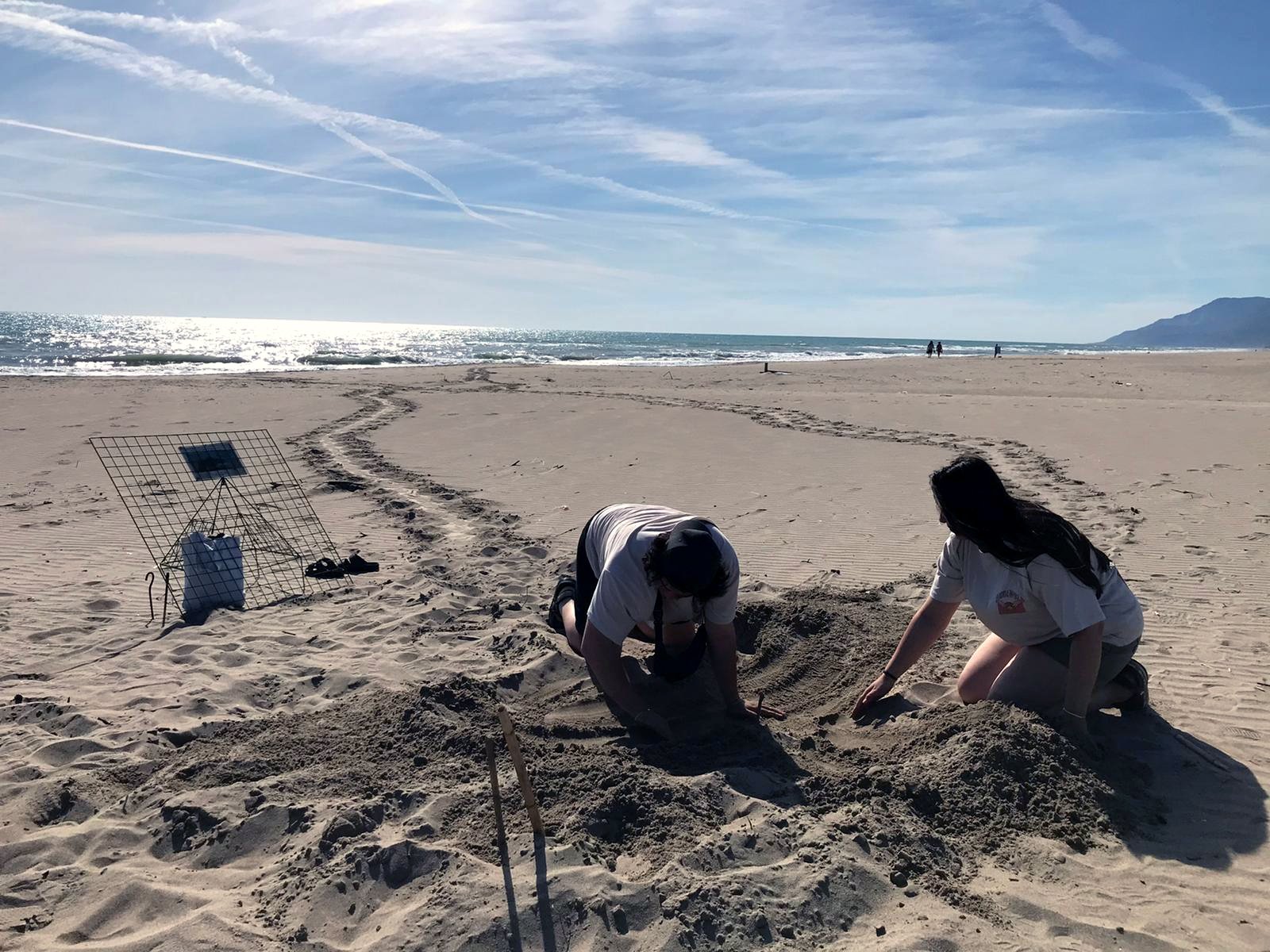© Turkuvaz Haberleşme ve Yayıncılık 2026
A groundbreaking surge in sea turtle nesting activity has astonished conservationists on Türkiye's Patara Beach in Antalya, with a record-breaking 53 nests discovered as of May 24.
This remarkable figure nearly quintuples the highest count ever recorded for any May, underscoring the success of the "Sea Turtle Protection and Monitoring Project" led by Eyüp Başkale of Pamukkale University. This initiative, launched on May 1, aims to safeguard the endangered loggerhead sea turtles inhabiting the Patara Special Environmental Protected Area (SEPA) in Antalya's Kaş district and Muğla's Fethiye district.
With 20 dedicated volunteers supporting the cause, the project highlights the crucial importance of preserving Patara Beach's delicate ecosystem while fostering hope for the future of these majestic marine creatures.
The nests identified by the project team on Patara Beach have been caged so far to protect them from predators and the adverse effects of human activity on the beach. Ayfer Şirin, a doctoral student from the project team, stated that they support conservation efforts with scientific research by closely monitoring characteristics such as temperature changes, genetic factors and nutrition to protect these protected species and areas.
The team, which guards the nests at night, also provides information about sea turtles to local and foreign visitors who come to the beach during the daytime. Every day, the entire beach is monitored to identify changes in nests and beach conditions.
Eyüp Başkale stated that as a result of the protection and monitoring activities that started on May 1 in Patara, 53 nests have been identified so far and protected with cages by the team.
"Informative articles abound, shedding light on our recent discoveries. The current count of 53 nests is nearly five times greater than any previous May count. Remarkably, we reached a total of 524 nests in a single season on Patara Beach. Furthermore, out of the 35,431 eggs laid on the beach, an impressive 85.94% successfully hatched, with 98.81% of these hatchlings safely reaching the sea. These figures represent the highest success rates recorded since the inception of our conservation and monitoring efforts back in 1989," Başkale said.

Başkale stressed the crucial role of protecting Patara Beach to safeguard nesting sites. He highlighted that the beach undergoes continuous surveillance around the clock.
"About 20 volunteers diligently protect both adult loggerheads and their nests, as well as hatchlings on the beach. Moreover, we employ camera traps at specific locations for real-time monitoring. If there is any perceived threat on the beach, adult loggerhead sea turtles often abandon nesting attempts and return to the sea. Since hatchings also occur at night, we've taken the precaution of closing the beach to the public during evening hours, which coincides with sea turtles' nesting time. The beach reopens at 8 a.m., offering a balance between facilitating comfortable nesting and ensuring hatchlings' safe journey to the sea. Additionally, lighting the beach during nesting season disorients turtles, leading them away from the sea toward the light," he added.
He also explained that while using nesting beaches, it is necessary not to dig holes, not to randomly set up umbrellas, and to consider nests when using beach equipment.
"Access to the beach with any kind of vehicle is strictly prohibited. Unknowingly, one can pass over the nests and cause the eggs to break and the hatchlings to die. In this context, security cameras have been placed at the entrances to the beach. At least detecting illegal entries and making necessary warnings have become easier," he elaborated.
Apart from conservation efforts, holding yearly informative seminars, meetings and educational activities has sparked the interest of both locals and tourists, encouraging their involvement in turtle conservation, Başkale added.
"This makes our work easier. Nature enthusiasts visiting the beach act as part of conservation efforts. However, there are still many more people who need to be informed and whose awareness of nature needs to be increased. In this context, our awareness-raising efforts will continue unabated in 2024," he noted.
